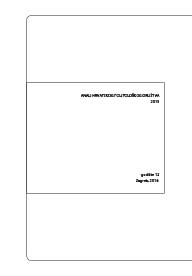How the Principle of Public Equality Introduces Substance in Democratic Proceduralism
How the Principle of Public Equality Introduces Substance in Democratic Proceduralism
Author(s): Ivan CerovacSubject(s): Ethics / Practical Philosophy, Political Philosophy, Governance, Government/Political systems, History and theory of political science
Published by: Hrvatsko politološko društvo
Keywords: deliberative democracy; Thomas Christiano; proceduralism; legitimacy;
Summary/Abstract: In discussions on democratic legitimacy, Christiano’s position is often characterized as a monistic position, i.e. a strong and persuasive version of fair deliberative proceduralism. Democracy is thus seen as a realization of public equality in collective decision-making. The presented case for democracy is non-instrumental, and the quality of outcomes produced by a democratic decision-making process does not constitute or in any way influence the legitimacy – generating features of that decision-making process. I argue that the quality of political decisions produced by a democratic decision-making process should play an important (though not decisive) role in Christiano’s argument. Consequently, I claim that his case for democracy should be (at least somewhat) instrumental. I consider four cases from Christiano’s The Constitution of Equality that show how outcomes of democratic procedures are very important to Christiano. Furthermore, I argue that these outcomes are so important that, when deciding between two or more fair decision-making procedures, one that produces the best outcomes should be considered legitimate.
Journal: Anali hrvatskog politološkog društva
- Issue Year: 2015
- Issue No: 12
- Page Range: 3-16
- Page Count: 14
- Language: English

